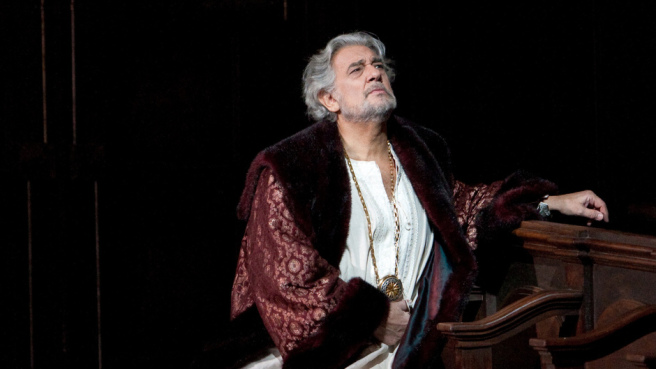‘People who do really good stuff have flaws’ said Barack Obama in a recent talk. About the same time I read: ‘Placido Domingo has withdrawn from all future engagements at New York’s Metropolittan Opera [after 51 consecutive years] following allegations of sexual harrassment made by several women, including a soprano who said he reached down her robe and grabbed her bare breast’.[The Week,5 October 2019] Domingo’s burnished tenor and acting ability has thrilled generations of opera lovers. At 78 it was probably time he hung up his boots. But should he be driven off stage by allegations of sexual impropriety? I reproduce below two comments I received from friends, the first a man, the second a woman, both of whom share my love of opera. First,‘In my view, the primary dilemma is
Topics:
Robert Skidelsky considers the following as important: Blog Posts, Journalism
This could be interesting, too:
NewDealdemocrat writes Constitutional Interregnum
Bill Haskell writes Know Nothings
Bill Haskell writes Word Usage for Which the Usage is Being Discouraged by the Gov.
Angry Bear writes Musk and his lies, lies, and more lies
‘People who do really good stuff have flaws’ said Barack Obama in a recent talk. About the same time I read: ‘Placido Domingo has withdrawn from all future engagements at New York’s Metropolittan Opera [after 51 consecutive years] following allegations of sexual harrassment made by several women, including a soprano who said he reached down her robe and grabbed her bare breast’.[The Week,5 October 2019] Domingo’s burnished tenor and acting ability has thrilled generations of opera lovers. At 78 it was probably time he hung up his boots. But should he be driven off stage by allegations of sexual impropriety?

I reproduce below two comments I received from friends, the first a man, the second a woman, both of whom share my love of opera.
First,
‘In my view, the primary dilemma is between a deontological understanding of ethics, the standards of which are valid across time and space, and a more context-bounded one. Without embracing a radical ethical relativism I wonder whether it is appropriate to totally ignore the context-boundedness of ethical behavior. I think, we should take into account that ethical consciousness (i.e. what people consider ethical standards) changes over time, notwithstanding the fact that some core ethical principles remain unchanged. But even if we embrace a context-insensitive understanding of ethics I wonder whether the accused persons have no rights at all. Anonymous accusations can destroy lives’ .
Second,
‘Domingo has the following problems:
(A.) There are a lot of complainants;
(B.) He was in a position of real power in a business notorious for that power being abused; and, worst of all
(C.) The present atmosphere, especially in the US, is not far off a lynch mob…..
I find differences of view are geographical and generational. Our generation – you and I … have an open mind and are wary of mass judgements. Our daughters’ generation can’t get enough of it..
In the USA, Australia and I suspect the UK where ‘Me Too ‘ has serious traction, I doubt there is a future for PD … [But] I expect Milan and Berlin to carry on as usual.
Fifty years ago and even more recently such behaviour was accepted. It must be remembered that it works both ways and it would be foolish to believe he was not actively pursued by women working in the business. That should never be forgotten
As with Karajan who had a spotty background for other reasons we keep watching genius at work and separate what may now be classified as ‘no go’.’
A number of interesting moral issues arise. Should we judge the past behaviour of individuals by present standards? My young (24 year old) research assistant (male) is quite clear about this: ‘What Domingo did was as morally wrong then as it is now, and he knew it.The fact that it was socially acceptable then for men to grope women is no defence. Our generation is just not as hypocritical as yours’.
I find myself in an ambivalent position. On the one hand, Domingo’s behaviour was deplorable, and should not be excused on the ground of ‘customary’ standards.
Against this is the thought that we have created a culture of exploitable victimhood. If you’re not being sexist, you’re being racist. The politician Rory Stewart, campaigning for the mayoralty of London, made the mistake of referring approvingly to the mixed population of Brick Lane, as the kind of area ‘where three sort of minor gangsters can come up to me and tell me I am an idiot’. As chance had it, the men who had called him an idiot, accused him of racism, and demanded that he apologise for ‘trying to take advantage of black boys when it’s convenient, then ridiculing them’. It turned out they objected to being called ‘minor’.
Curiously for a society which has thrown off so many Puritan inhibitions we seem to be relentlessly intent on spreading guilt. I prefer the Catholic doctrine of forgiveness. Opera lovers should forgive Placido his transgressions, and enjoy the one or two remaining years of his superb stage craft.
